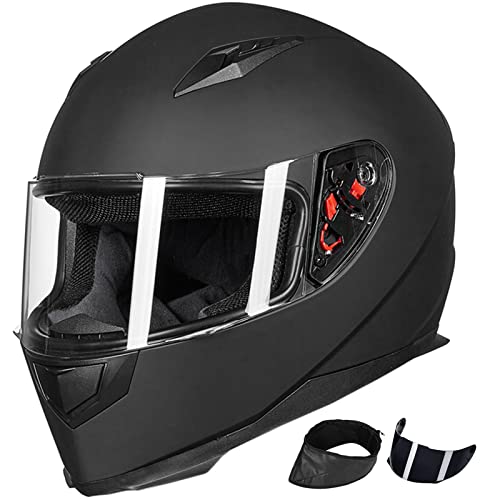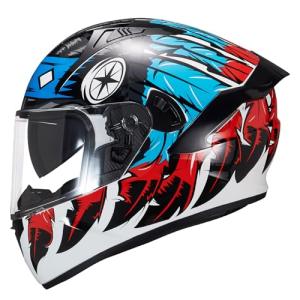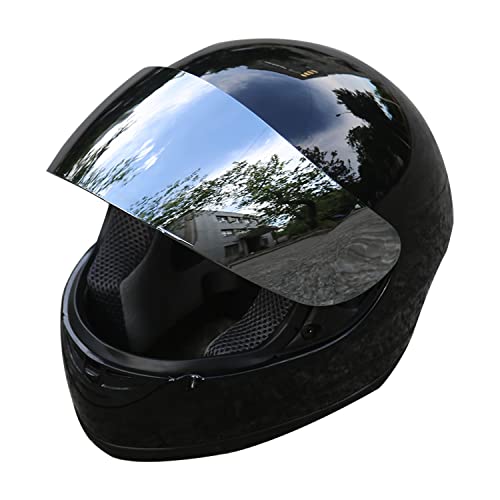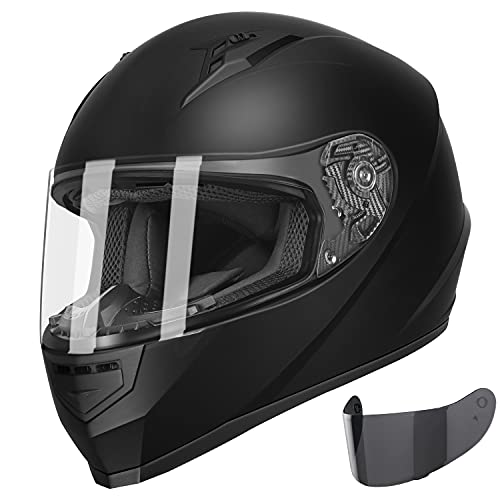When you're out riding, knowing the Motorcycle Helmet Laws in your state is crucial. Some states require all riders to wear helmets, while others have different rules based on age or the type of motorcycle you ride. It’s not just about safety; it’s also about staying on the right side of the law.
For example, states like California and New York have strict laws that require all motorcycle riders to wear helmets, no matter their age or experience. In contrast, places like Florida and Texas have more relaxed rules. In Florida, only riders under 21 must wear helmets unless they have a specific insurance policy. In Texas, riders over 21 can choose to ride without a helmet if they meet certain requirements, like completing a safety course.
Some states, like Illinois and New Hampshire, don’t have any helmet laws at all. This means it's totally up to the rider whether to wear a helmet. But remember, even if it’s not required, wearing a helmet can still save your life, so it’s worth considering your safety first.
Different states also have their own specific laws around helmet type and design. Some may only accept DOT-approved helmets, while others might also exclude novelty helmets. Always check your local Motorcycle Helmet Laws to make sure you’re compliant when you hit the road. It’s better to be safe than sorry!
Key Regulations Every Rider Should Know
When it comes to hitting the road, knowing the key regulations can keep you safe and legal. Motorcycle helmet laws are different from state to state, and being aware of these laws can help you avoid fines and accidents. Let's break it down.
First up, some states have a full helmet law. This means every rider must wear a helmet at all times. If you’re cruising through states like California, New York, or Florida, a helmet is a must-have. Not only is it the law, but it can also save your life.
Then, you’ve got states with partial helmet laws. In these places, only certain riders are required to wear helmets. For example, in some states, only those under a specific age (like 18) need to strap on a helmet. If you’re an experienced rider over that age, you might be able to ride without one, but don’t forget: it’s still smart to wear a helmet regardless of the law.
Finally, there are states where helmets are optional for everyone. This might feel liberating, but remember, safety should always come first. Even if your state doesn’t require a helmet, wearing one can be a smart choice to protect yourself against potential road mishaps.
Check the specific laws in your area before you ride, and always stay informed. Motorcycle helmet laws are put in place for good reasons, and following them means you're looking out for yourself and your fellow riders.
THOKWOK Bluetooth Helmet Headset for Riders
Experience clear communication and music on the go with this easy-to-use Bluetooth helmet headset for riders
Product information
€60.86 €41.68
Product Review Score
4.42 out of 5 stars
97 reviewsProduct links
Exceptions and Special Cases Explained
When it comes to Motorcycle Helmet Laws, there are a few exceptions and special cases you should know about. Not every state has the same rules, and some have unique regulations that can catch you off guard if you’re not aware. Let’s break it down.
Some states allow certain riders to go without a helmet if they meet specific criteria. For instance, if you’re over a certain age and can prove you’ve completed a motorcycle safety course, you might be in the clear. Other places might even allow you to opt out if you have a specific insurance policy in place. Always check your local laws to see what applies in your state.
Then there are places like California, which have stricter regulations. All riders, regardless of age or experience, must wear helmets that meet certain safety standards. This isn’t just a suggestion; it’s the law. Keep this in mind if you change states or plan a road trip. The last thing you want is a ticket or worse for not following the Motorcycle Helmet Laws.
Don’t forget about special exemptions for certain types of motorcycles. Some laws apply differently for scooters or low-speed vehicles. If you're using a three-wheeled motorcycle, check to see if the helmet laws differ from traditional motorcycles. Different types of vehicles mean different regulations, so do your homework before you hit the road.
VCAN Butterfly Half Helmet - Flat Black, Small
Stay stylish and protected on the road with this lightweight and comfortable half helmet
Product information
€25.02
Product Review Score
4.44 out of 5 stars
31 reviewsProduct links
Staying Safe and Legal on the Road
When you hit the road on your motorcycle, your safety comes first. A big part of that is knowing and following the Motorcycle Helmet Laws in your area. These laws aren’t just there to keep you from getting a ticket; they’re designed to protect you in case of an accident. Different states have different rules, so it’s worth taking the time to understand what applies to you.
Most states require riders to wear helmets, but the specifics can vary. Some states have universal helmet laws, meaning everyone must wear a helmet, no matter their age or experience. Others only require helmets for younger riders or those with limited motorcycle licenses. It’s super important to check your local laws, so you don’t accidentally find yourself in trouble.
Besides the legal aspect, wearing a helmet while riding significantly reduces the risk of head injuries. The right helmet can make all the difference. Look for DOT-approved helmets that meet safety standards. These helmets come in various styles, so you can find one that suits your look while keeping your noggin safe.
Don’t just think about your helmet. Motorcycle Helmet Laws often include rules about other safety gear like goggles or face shields. Wearing these not only keeps you compliant but also protects your eyes from debris and wind. Stay informed and gear up, so you can enjoy your ride knowing you’re safe and legal on the road.










